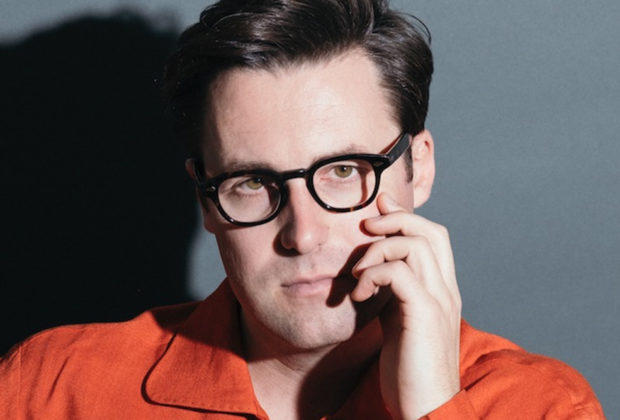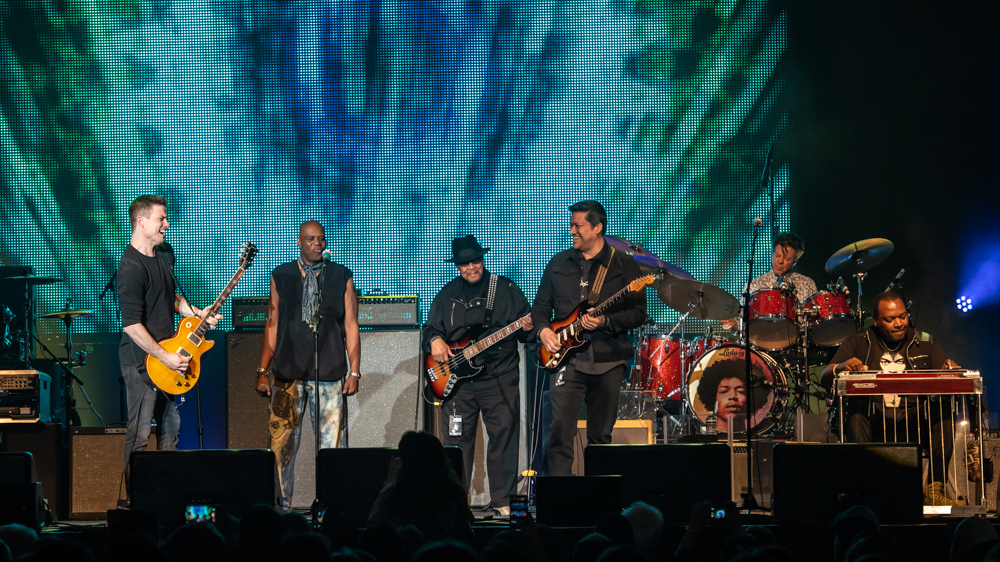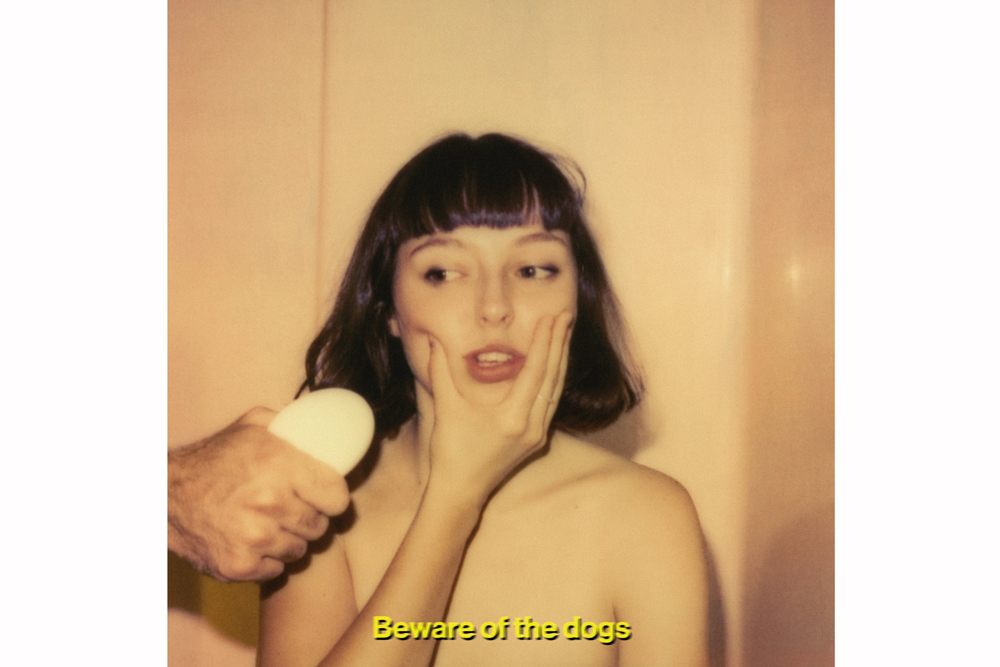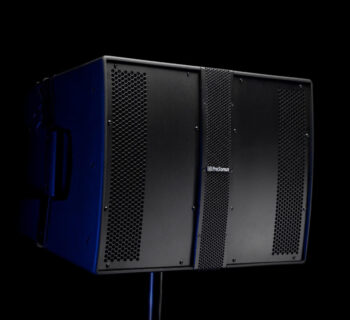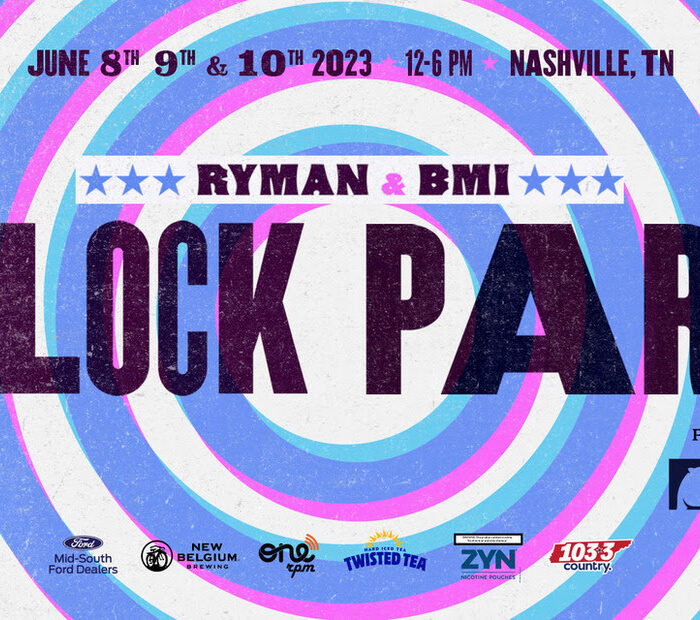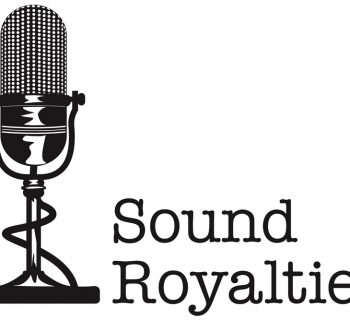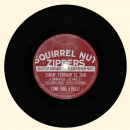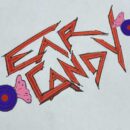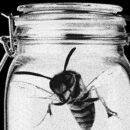In a good way, a conversation with Nick Waterhouse could induce whiplash. In a single sentence, the hyper-literate songwriter, musician, producer and artist will reference German Expressionist filmmakers, blues forbearers and martyred poets without so much as pausing for a breath. “I put (rock and roll pioneers) Jerry Leiber and Mike Stoller in the same place as (novelist) Henry Miller or (Spanish poet) Federico Garcia Lorca,” he says. “All of those people exist on the same plane for me.”
This hierarchy of influences informs Waterhouse’s newest collection of songs. His self-titled fourth full-length release is built on gritty songs with reverberations of musical history voiced by the artist’s edgy narration. Pistol-whip backbeats, punctuating horn stabs and lacerating guitar propel Waterhouse’s wise guy vocals in songs awash in the back street neon aura of musical film noir.
Waterhouse says his songs echo ‘40s and ‘50s Hollywood. “You had Warner Bros., RKO and some of these poverty row companies employing cats that were writing stuff that was hard-boiled but could still be packaged as popular entertainment,” he says. I’m really influenced by a lot of that.”
Fittingly the album was tracked at Electro Vox studios in Hollywood. “It almost feels too small when you first walk in there,” Waterhouse notes. “Then you hit a snare and it’s like, ‘Oh, I know that sound.’ It’s one of the only remaining pre-fancy Los Angeles studios. It makes perfect sense. I don’t have to change anything; it’s the real thing. I don’t believe in over-mystifying, but what was recorded there: Dexter Gordon, The King Cole Trio, Orson Welles Radio Hour and Plas Johnson––all of this is part of the fabric of the audio.”
A Southern California native from Huntington Beach, CA, Waterhouse worked at a record store in San Francisco and was a club DJ. Discovering vintage music was key to his artistry, and he gives credit to the late seminal R&B producer Johnny Otis for inspiration. “I adored Johnny Otis. He was one of the first people when I was digging in. 45’s for someone like me, a millennial, the common wisdom was it’s like sex, you’re embarrassed to ask but you will figure it out for yourself. I know albums is what my parents had, but what were 45’s? Johnny created a body of work that is bigger than the Beatles in a way, producing Little Esther, “Hound Dog,” (Big Momma Thornton) and Don and Dewey. He was like the ghost in the machine. There was nobody explaining that to me. He was speaking to me through time and space and leaving a trail for me to figure out his legacy. It’s on multiple planes of existence that aren’t flattened into being a recording artist with a catalog.
“I see this in a way that I’ve engaged with a lot of my influences in music,” Waterhouse continues. “Maybe (filmmaker) Robert Siodmak is a bigger influence on my writing and arranging that what people would assume Johnny Guitar Watson or Junior Wells would be, the way they deal in dramatic elements with economy but with depth and a shadow to them.”
The artist says that he writes songs on both guitars and keyboards. “On all of my records there are two or three songs that I’ve written on the piano. What’s cool now is understanding the process. Maybe if I write something on piano when it’s time to try it with a rhythm section, I might switch to guitar. And based on what guitar I’m performing using, this might determine the arrangement. I’ve set myself up by going through each step in the process.”
Waterhouse notes this in many ways this record feels like his debut. “ Like I’ve been playing minor league baseball and now I’ve been drafted into the majors. It feels like I’ve been rehearsing and now I’m ready. That’s why it’s self-titled. This is the first time I really got to think about it. And I’m not going to be caught off guard. My earlier records were new experiences that were uncomfortable. Now I feel practiced. I might even cut a couple of singles—it’s nice to be on top of it.”
Contact Mikaela Duhs, Shore Fire Media, mduhs@shorefire.com

